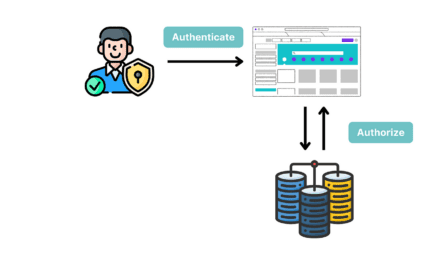Get Familiar with the Test Format
The first step is to understand the IELTS exam pattern. There are two versions – Academic and General Training, each with four sections – Reading, Writing, Listening and Speaking. Know the time limits, question types, scoring system and other rules for each section. This will help you strategize better.
Build a Solid Foundation with Grammar and Vocabulary
The IELTS tests your grasp over English vocabulary and grammar rules. Start reading English newspapers, magazines, books and articles to expand your vocabulary. Learn common grammar structures and tenses. Enriching your knowledge in these areas will help you understand questions better and frame accurate responses.
Expand your Vocabulary through Reading
- Maintain a vocabulary journal to log new words and review past entries
- Learn at least 10-15 words a day from a standard English dictionary
- Read articles from publications like The Economist, Forbes or Scientific American
- Understand word roots, prefixes and suffixes to guess meanings
Master Grammatical Concepts and Rules
- Brush up basics like tenses, subject-verb agreement, clauses, prepositions etc.
- Learn how ideas connect via conjunctions, transitions and punctuation use
- Practice writing and speaking using proper grammar structures automatically
Attempt Sample Tests for Familiarity
Practice makes perfect! After getting familiar with the test format and brushing up your English skills, start attempting sample IELTS questions. Time yourself strictly per section guidelines. This will give you a feel of the real exam settings. Review your answers to identify strengths and improvement areas.
Know What to Expect
- Use official Cambridge IELTS preparation books for practice tests
- Understand the format and number of questions per section
- Learn what types of answers are required for different questions
- Gauge the difficulty level so you are not surprised on exam day
Analyze Your Performance
- Grade your practice attempts honestly to determine weak spots
- Research the reasons behind every wrong answer
- Identify trends in common mistakes you make
- Change your test strategy if you constantly fall short on time
Hone Your Listening Skills through Immersion
In the IELTS Listening test, you need to grasp spoken English conversations and lectures. Train your ears by listening to English news, movies and music. Take dictations to attune to native accents. Expose yourself regularly to spoken English via videos and podcasts.
Listen and Discern
- Use podcasts and news channels like CNN, NPR for listening practice
- Focus not just on listening, but analyzing the meaning
- Pay attention to tones that indicate emotions and emphasis
Accustom Yourself to Accents
- Train your ear with audio books, speeches and lectures
- Actively incorporate dictionary sounds into mental vocabulary
- Expose yourself different English accents – British, American, Australian
Perfect Speaking Skills through Repetition
The Speaking module can fetch you valuable points with the right preparation. Discuss a wide range of topics regularly with friends and family. Participate in English debates and public speaking to overcome nervousness. Record your mock interviews and speeches to spot errors. Enrich your expressions and phrases arsenal.
Reduce Nervousness through Practice
- Join toastmaster clubs or debate societies for speaking practice
- Have mock conversations on wide-ranging casual topics
- Get comfortable speaking impromptu on unfamiliar subjects
Analyze and Improve Speaking Technique
- Identify filler words like “umms” that sneak into your speech
- Assess pace, clarity, grammar, vocabulary and fluency issues
- Practice correcting issues through regular recordings
Develop Effective Time Management Skills
With so much to do in each section within tight time limits, time management abilities are put to test. Adapt these tips to utilize the allotted minutes prudently:
Optimize Reading Section Planning
- Quickly scan passage for structure, length and difficulty
- Decide which questions to solve first vs leave for end
- Adjust reading speed and attention accordingly
Streamline Writing Process
- Strictly follow recommended time allocation per task
- Brainstorm key points and useful vocabulary ahead of writing
- Leave 5 minutes to proofread instead of rushing unfinished
Choose Questions Wisely in Listening
- Carefully read prompt before audio plays
- Assess difficulty of each question quickly
- Decide which questions you must answer vs leave out if short on time
Learn from Peers Appearing for IELTS
Connect with people in your network who have attempted IELTS recently. Discuss your prep strategies and challenges faced. Learn from their experiences about useful resources and effective game plans.
Gain Insider Test Tips
- Ask about last minute recommendations before the test
- Get advice on transport, registration and navigation
- Query which sections need maximum attention
Exchange Feedback for Improvement
- Evaluate each other’s writing samples objectively
- Discuss difficulties faced in reading complex texts
- Provide pointers to enhance vocabulary and grammar
I hope these comprehensive tips will help you formulate a focused game plan for IELTS success. Consistent practice is indispensable, so dedicate at least an hour daily towards your preparation. Stay motivated through peer discussions. Share your own tried and tested strategies with Know How Training | Leading Leadership & Management !



